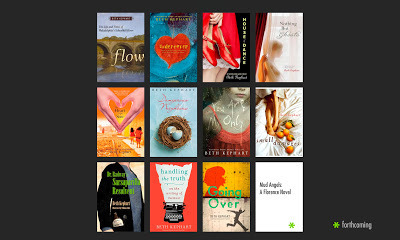Beth Kephart's Blog, page 105
November 24, 2013
Chronicle Books Does Everything Just Right
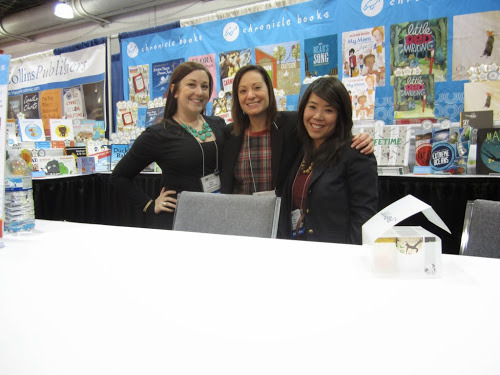 It may be blustery cold here in Boston, with the winds whipping around the corners and in through the knots of our scarves, but no one who is here as a guest of Chronicle Books feels anything but the warmth that comes from being entirely well cared for.
It may be blustery cold here in Boston, with the winds whipping around the corners and in through the knots of our scarves, but no one who is here as a guest of Chronicle Books feels anything but the warmth that comes from being entirely well cared for. To be invited is the first honor. To be embraced by such thoughtfulness is another. To be led through the days by a perfect itinerary and by people who are always where and who they promise to be is yet another. To find one's book showcased as professionally as all Chronicle authors have had their books showcased is, again, exquisite. Much goes into the planning of events like this one, and many people are behind the scenes. But tonight I would like to thank the three beautiful young women featured here at the Chronicle booth.
Amber Morley
Tamra Tuller
Stephanie Wong
You could run huge corporations with your skills. I am glad you are my friends.
 Posted with Blogsy
Posted with Blogsy



Published on November 24, 2013 19:39
November 23, 2013
The sideways truth: the Bank Street keynote on HuffPo
 Was it just a few weeks ago that I was in New York City at Bank Street surrounded by writers and artists and teachers and very smart reviewers and one very lovely Jennifer Brown? Perhaps. Probably. How time plays its tricks.
Was it just a few weeks ago that I was in New York City at Bank Street surrounded by writers and artists and teachers and very smart reviewers and one very lovely Jennifer Brown? Perhaps. Probably. How time plays its tricks. Today HuffPo is kindly running an abbreviated version of my Bank Street keynote. I am reflecting on the liberation of truth through sideways exercises. I am comsidering the autobiographies of rivers and hair and other things. I am remembering the children I have met at Chanticleer garden, in Manayunk, and in the YoungArts program in Miami.
As always I am grateful for a life that gives me the chance to spend so much time with young and daring souls.
The Huffington Post link is here. I apologize for the unembedded version. I am in Boston at the NCTE/ALAN conference (woot) and blog impaired.
http://www.huffingtonpost.com/beth-ke...
 Posted with Blogsy
Posted with Blogsy



Published on November 23, 2013 02:48
November 22, 2013
After thirty years of friendship/marriage, my artist husband reveals...
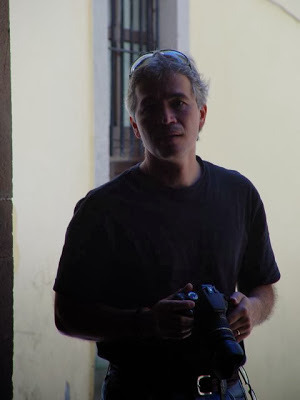 (on this very morn) that a story he wrote in high school showed up one day in a publication his teacher had assembled.
(on this very morn) that a story he wrote in high school showed up one day in a publication his teacher had assembled."Excuse me, what?" I said. Across from him. At the kitchen table. Because this man I love is not, shall we mildly say, into the literary arts. He is not inclined to read much of anything (excepting Food and Wine and pottery books and books on the making of things). Certainly not inclined to read his wife.
"Yeah, yeah, well."
"What kind of story?"
"Sort of a horror story. It had no real beginning and no real end."
"Didn't you feel encouraged? As a writer? A published writer?"
"It was a high school publication. And no. Why should being published encourage me? Writing didn't interest me."
"And you never thought I'd find this intriguing?"
"Why would you find this intriguing? It was just a story that I wrote."




Published on November 22, 2013 05:06
November 21, 2013
writing in defense of memoir in Chicago Tribune
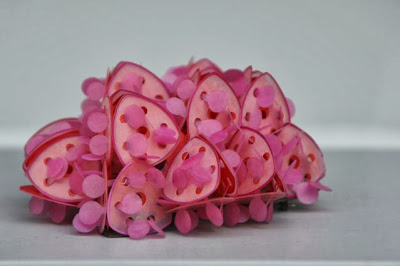 In the Chicago Tribune this weekend I am writing in defense of memoir—and in celebration of the structurally intriguing work of Terry Tempest Williams, Joan Wickersham, and Susanna Kaysen.
In the Chicago Tribune this weekend I am writing in defense of memoir—and in celebration of the structurally intriguing work of Terry Tempest Williams, Joan Wickersham, and Susanna Kaysen.The piece begins like this, below, and continues here. Please share it, if you are so inclined.
She leans in and tells me a story. There are two sisters, she says, both in their 70s. Each possesses a ferociously “true” version of a shared childhood scene. All these decades later, the sisters still can't agree, still won't agree, on the scene — not on its particulars, not on its meaning. One sister has to be right, and one sister has to be wrong — the proof is controvertible. Imagine the memoirs these two sisters might separately write. Whose would you read? Whose would you finish? How would you know who is telling the truth? Which of the two stories matter?




Published on November 21, 2013 13:53
Jacket Art: A Book Mosaic, books beginning with FLOW
Published on November 21, 2013 06:18
Debuting GOING OVER at NCTE/ALAN 2013, in Boston
 Before I would allow myself to return, in my mind, to
Going Over,
my Berlin novel due out from Chronicle in April 2014, I had many things to do. Memoir workshops to teach. Talks to give. Essays to write. A novel to finish. Reviews of new books to ponder and submit. And so many stories for my various corporate clients.
Before I would allow myself to return, in my mind, to
Going Over,
my Berlin novel due out from Chronicle in April 2014, I had many things to do. Memoir workshops to teach. Talks to give. Essays to write. A novel to finish. Reviews of new books to ponder and submit. And so many stories for my various corporate clients. I am saying that I wasn't sure I'd ever get here.
But today, after submitting one final, before-Thanksgiving story to a beloved client, I sat again with Berlin. Reviewed the photographs I had taken during my June 2011 trip to that city. Watched the films again, read the news again, went through the dozens of books I had collected on the east, the west, the wall, graffiti, pink hair, the Turkish immigration question, escape mechanics and statistics, and the war two grandmothers might remember.
I sat and relived Berlin.
I am extremely blessed that Chronicle believes in this book. I am blessed, too, that Chronicle has invited me to NCTE/ALAN to meet with teachers of English and others. I've only been to NCTE/ALAN once before as a presenter, in support of Dangerous Neighbors, with Egmont. I recognize the investment that Chronicle has made, in so many ways, on behalf of this story about a boy and a girl divided by a wall. I am grateful.
You can find me in Boston at the events listed below, and I'll be walking the floor as well.
And here, if you haven't already seen it, is the astonishing Teacher's Guide that Rose Brock and the Chronicle team created for Going Over.
Meet me in Boston:
Saturday, November 23
11:30-12:30
NCTE Conference/GOING OVER Signing/Chronicle Books/Booth #1007
Saturday, November 23
1:00-2:00 PM
NCTE Conference/HANDLING THE TRUTH Signing/Penguin/Booth #933
Sunday, November 24
9:00-10:00
NCTE Conference/GOING OVER Signing/Anderson's Bookstore/Booth #1631
Sunday, November 24
5:00-7:00 PM
ALAN Reception
Tuesday, November 25
2:10-2:50 PM
ALAN Conference
Celebrating International Voices ALAN Panel:
Tara Sullivan, Sharon McKay, Eliot Schrefer, Ann Burg, Beth Kephart
Moderated by Karin Perry, ALAN Membership Secretary




Published on November 21, 2013 04:50
November 20, 2013
Sister Kim teaches UNDERCOVER and HOUSE OF DANCE and her students make me cry
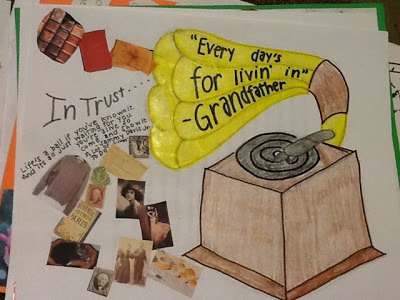
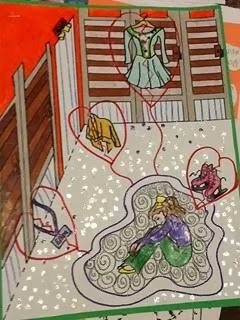
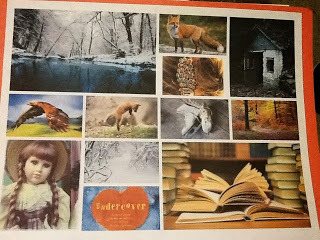
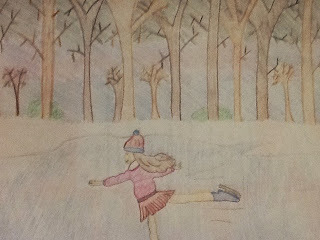
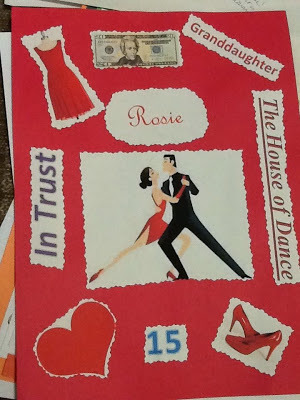 This is how it happened:
This is how it happened:This past summer, a celebration of Philadelphia's Literary Legacy that began at the Philadelphia International Airport spilled into an evening at Warm Daddy's along the Delaware River. Among those who celebrated our city that day was a certain Sister Kimberly Miller, one of the biggest advocates for young adult literature—and for young people—anywhere.
I had previously met Sister Kim through our mutual friend K.M. Walton. I began to see her everywhere—at book festivals, at readings, at launch parties. I sensed her through-and-through goodness and her love for her students, and I had some extra copies of some young adult novels to share. And so, that Legacy evening, in a parking lot near Warm Daddy's, I carried boxes of UNDERCOVER, HOUSE OF DANCE, NOTHING BUT GHOSTS, and THE HEART IS NOT A SIZE (not to mention copies of SEEING PAST Z, my book about working with younger writers) from my trunk and lowered them into the trunk of Sister Kim's car.
And then we drove off our separate ways.
Recently, Sister Kim introduced some of those books to her students at Little Flower Catholic High School for Girls. She gave them inspired projects and waited for the work to come in. That work has arrived, and I am blown away by the projects that Sister Kim has photographically shared. There isn't room on this blog to share them all. Each and every single one matters to me, moves me. And when I go to Little Flower in April for an amazing writing day that Sister Kim and K.M. Walton have organized, you better believe that I'm going to be thanking every student personally for caring so much about their work.
Sister Kim is what greatness is all about when it comes to teaching. And her students are nothing short of inspired.




Published on November 20, 2013 16:41
Pen on Fire: A Busy Woman's Guide to Igniting the Writer Within/Barbara DeMarco-Barrett
 Here, on this day, I stop to celebrate Barbara DeMarco-Barrett, who is the voice behind "Writers on Writing," one of the best radio shows on and about writing in this country; who is so beautiful outside that she once floated down runways; and who is even more beautiful within. I've had the privilege of spending time with Barbara as she has asked the penetrating questions. I've read some of her essays, taken note of her work as a teacher, had private email conversations that made my writerly days.
Here, on this day, I stop to celebrate Barbara DeMarco-Barrett, who is the voice behind "Writers on Writing," one of the best radio shows on and about writing in this country; who is so beautiful outside that she once floated down runways; and who is even more beautiful within. I've had the privilege of spending time with Barbara as she has asked the penetrating questions. I've read some of her essays, taken note of her work as a teacher, had private email conversations that made my writerly days.And this morning I sat here and read for the first time, cover to cover, Pen on Fire: A Busy Woman's Guide to Igniting the Writer Within. This book has gone into printing after printing since it was first released, and I understand why. It's chock-full of wisdom. It offers one helpful prompt or exercise or guiding thought after another. It's has a most companionable voice. And it is full of the insights of the writers Barbara has gotten to know through the years. Really fine insights, all beautifully tapestried together. Some of the voices belong to my friends—Susan Straight, for example, and Dani Shapiro. Some are my heroes/heroines: Alice McDermott, Gerald Stern, Aimee Bender, Ron Carlson. And some of them—or, one of them—is me.
Oh my gosh, I thought, when I stumbled upon something I must have said years ago. Oh my gosh, you sweet surprising gift of a woman, Barbara D-M.
Some of what I think about in Handling the Truth—form, voice, tension, research—is thought about newly and wonderfully here. But this book goes into so many other territories, too—like, to begin with, how we find the time to do the work we do. I read those pages hungrily, thinking about this odd life of mine and the five minutes and the fifteen minutes and the half hour I struggle to find. And I thought about all of you.
I wish I'd read this book sooner. You can read a copy today. (I downloaded mine, quick and easy.)
To listen to Barbara and I talk about memoir on "Writers on Writing" show, check out this link.




Published on November 20, 2013 05:25
November 19, 2013
The Impossible Knife of Memory/Laurie Halse Anderson: Reflections
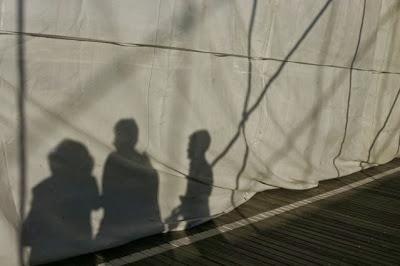 I respect young adult authors who:
I respect young adult authors who:* take a stand
* remain engaged
* recognize the sublime intelligence of teens
* believe that stories written for younger readers have a responsibility to do more than simply pass the time
* understand that there are few things more powerful than books that intelligently address the real stuff that goes down in private corners of the world
All of which is to say that I respect Laurie Halse Anderson. She is versatile—writing historical novels and contemporary novels, sequels and stand-alone tales. She is, as well, there for her legions of readers—real, centered, and ever-vigilant. And she doesn't, from what I can tell, believe in easy. Her tales are many-layered, never squeamish, planfully raw.
The Impossible Knife of Memory, due out from Viking in January, was sent to me by dear Jessica Shoffel, with whom I had worked on Small Damages. Jess's enthusiasm for this novel is tremendous, and I understand why, for at its heart lie concerns about post-traumatic stress disorder, child responsibilities for unwell parents, the impact of war on families, the impact of repressed memories, and the impact of kind, tall, skinny boys who actually do want to be what and whom they believe good men should be, which is to say protective, patient, and often selfless.
Hayley Kincain is spending her senior year in one run-down house (as opposed to the truck her dad has been driving around), in high school (as opposed to the independent study she's been used to), and in the company of a handful of newish friends (as opposed to essentially alone). It's a lot of new to deal with, and there's a backdrop of trouble—her dad's psychological trauma following a few turns of war duty, her missing mom, her seemingly unreliable almost step-mother, and her own eruptive memories of childhood traumas and losses. Hayley's unhappiness is palpable. It is relieved, in places, by this new boy named Finn. It returns as the world encroaches and threatens. It forces Hayley to finally look deep within herself.
Despite the dark material, there's humor here—the kind of sly, sarcastic rat-a-tat that goes on between bright kids in trying circumstances. Finn is about as perfect as a young man can be, and as Hayley warms to him she finds the brightest places within herself—puts to best use her intelligence and heart. The snapshots of war as presented through the father's italicized memories are shocking and also shockingly beautifully wrought. There, we say as we read, is what it must be like to go to war, to return from war, to find war inside one's dreams.
The Impossible Knife of Memory is searing, in its way. It is important, in Laurie Halse Anderson's inimitable way.




Published on November 19, 2013 18:02
November 18, 2013
getting to the bottom of the smelly stuff, with words
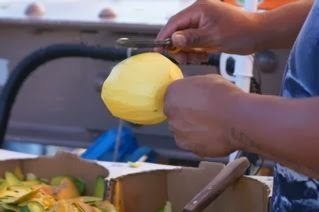 In Handling the Truth, I write, in part, about smell—why we need to pay attention to it and what happens when our memories trip up against the stuff.
In Handling the Truth, I write, in part, about smell—why we need to pay attention to it and what happens when our memories trip up against the stuff.In the November 18 edition of The New Yorker, Jeffrey Eugenides, in a story called "Find the Bad Guy," does such a terrific rendition of smell that I feel the need to quote it here. Sure this is fiction, but the lesson holds: Look how much history and story and sensibility these aromatic sentences lay at the reader's feet:
I remember going into people's houses as a kid and thinking, Can't they smell how they smell? Some houses were worse than others. The Pruitts next door had a greasy, chuck-wagon odor, tolerable enough. The Willots, who ran that fencing academy in their rec room, smelled like skunk cabbage. You could never mention the smells to your friends, because they were part of it, too. Was it hygiene? Or was it, you know, glandular, and the way each family smelled had to do with bodily functions deep inside their bodies? The whole thing sort of turned your stomach, the more you thought about it.I am inclined, reading this, to scissor out space in my day to stop and remember the smells of the houses I once knew.
Now I live in an old house that probably smells funny to outsiders.
I wonder what you'd remember, if you scissored out some smell-hunting mind space, too.




Published on November 18, 2013 14:35

